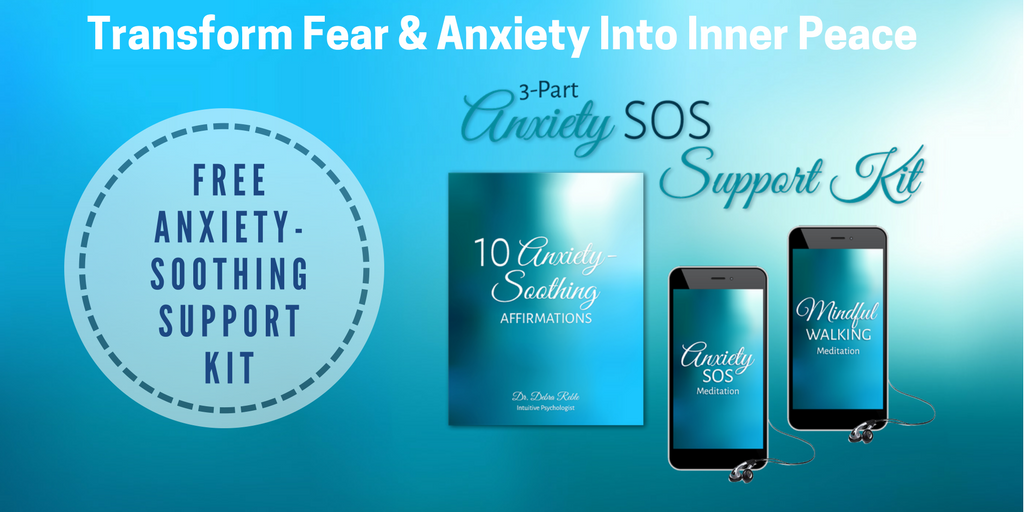
Feelings of insecurity undermine your health, career, and relationships. Such feelings create anxiety, diminish your confidence, and erode your self-esteem. You may believe if you do more, achieve more, or care more, you will finally “be enough.” Yet, when you feel insecure, you deny our power and sabotage your success. You live in a perpetual state of self-doubt, afraid to freely express your true self. As a result, you try to overcompensate for your insecurities through unhealthy patterns such as people-pleasing, approval–seeking, needing to control, and care-taking.
Feelings of insecurity develop early in our lives. The relationship we have with our parents or caregivers growing up directly influences how secure we feel in ourselves. To feel secure, children need from their caregivers: unconditional love, acceptance, and to be seen, heard, and acknowledged for who they really are, not for what they do or accomplish. Yet, because of the time period and their levels of awareness, most of us were born to emotionally insecure and immature parents.
Our parents or caregivers, because of their own emotional insecurity and immaturity, couldn’t give us the unconditional love and security we needed. For this reason, we became vulnerable to picking up their unhealthy coping patterns. The taproot of these co-dependent patterns is the need to feel secure and accepted. Through these patterns, we try to get affirmation from others that we are lovable, instead of seeing ourselves as a source of unconditional love and acceptance.
Some of the co-dependent patterns triggered by insecurity are people-pleasing and approval-seeking. Automatically yielding to the desires of others compromises your heart’s desires and reinforces being co-dependent on others. When you focus on whatever it takes to please others, even if it means diminishing what you cherish, you deplete the energies you need for co-creating what you want in your own life.
Another unhealthy pattern that stems from insecurity is needing to control. This pattern often shows up as free-floating anxiety. When you find yourself trying to micromanage everyone and everything, you are likely feeling insecure and out of control on the inside. In fact, you engage in this pattern as a coping mechanism to substitute for internal security. Unfortunately, this fear-based pattern only generates an illusion of stability. It displaces an absolute trust in ourselves and our connection to a divine source onto external sources of security such as who we are with, what we do, where we live, or what we own. As a result, we believe we are victims of our circumstances, lacking the power to manifest the lives we want. Most of us find it easier to hide behind this self-destructive comfort zone and avoid healing the insecurity that is at its core.
The pattern of care-taking also stems from a need for internal security. For example, as a caretaker, we may feel the need to dominate another person to feel secure, stable, and powerful. Unfortunately, this perpetuates the other person’s helplessness. This is apparent when one person tells the other what to think, feel, or choose, and the other person becomes co-dependent on them for making any choices, eventually deferring to others without knowing they themselves are operating out of insecurity.
The complete acceptance of your own being is the foundation of feeling secure within yourself. Yet, when your experience is constantly questioned or invalidated by your caregivers early on, you begin to doubt yourself and your worthiness. This undermines your ability to trust and take responsibility for yourself and your choices.
Here are 4 Sacred Strategies to help you heal feelings of insecurity and release the co-dependent patterns that support it:
- Notice the people and circumstances that push your insecurity buttons: Observe what triggers your physical or emotional reactions. Grab your favorite journal and pen, curl up, and prepare to have a chat with your insecurity. It’s essential to create a safe, quiet, and nurturing space where you won’t be uninterrupted. Write down in any feelings of insecurity as they surface and the reactions they trigger, even if you are unaware of their source. The stronger these reactions are, the more deeply ingrained the patterns and the more important it is for you to do the inner work to heal these feelings.
Here are a few questions to kick start your inner dialogue: Why did you come up today, with this person or in this situation? What are you here to show me? What do you need from me to feel secure? Allow yourself to be still and allow the answers to float to the surface in whatever form they come through. You can journal the answers to these questions or just listen quietly and then jot down what you received.
- Identify your unhealthy patterns that stem from insecurity: Notice the patterns you engage in to avoid, resist, or cope with any feelings of insecurity. Trace your personal history to discover the origins of these patterns. Identify the patterns and when they first occurred and the people and circumstances that trigger them in the present. Ask yourself the following questions: In what past situations were these patterns formed? Do I have any unfinished business related to them, such as forgiving my family? Discuss your insights with a trusted therapist or supportive friend.
- Practice Saying No to Others: Self-talk such as “I must or I should” can get you into situations where you feel obligated to please others. For example, the pattern of people-pleasing can be triggered when someone calls and asks you for a favor without telling you what they have in mind. You feel obligated to answer “yes,” leaving you vulnerable to committing to something in which you may have no interest. In such situations, pause so you can recognize the pattern, then respond by asking if you can call them back. Affirm to yourself that you always have the power of choice, then call the person back and inform them of your preference.
- Distinguish between your external identity and your true being: First, write down as many ways to identify yourself focusing on external characteristics such as: My name is . . . therefore I am, I think . . . therefore I am, My work is . . . therefore I am, or My body is . . . therefore I am.
Now drop down into your heart and write down as many ways to identify your being such as: I am light…therefore I am; I am love; therefore I am, I am a co-creator; therefore I am, or I am divine energy; therefore I am.
Finally, write the second group of affirmations on Post-it notes and place them where you can see them.


Very poignant post and timely. Over this past week I have been working with others regarding childhood trauma. We are in a healing stage. Yesterday I came across a post of what can manifest from unhealed childhood trauma. It is not to blame parents but as you stated “Our parents or caregivers, because of their own emotional insecurity and immaturity, couldn’t give us the unconditional love and security we needed.” For this reason, we became vulnerable to picking up their unhealthy coping patterns. It also goes beyond that. Due to our parents trauma, whether it began with their parents, or their parents or something else, may have manifested into their children. When we don’t heal as individuals, it makes it more difficult for everyone around us. If a person does not accept, acknowledge, heal or change from an unhealthy pattern, it is passed on, knowingly or unknowingly. The key is to become aware and to change it. The key is to also to care enough to change it. Self love and self care are miracles unto itself.
I paused to reflect after reading your post, Debra, and realized that while I’ve never been a people pleaser, I did have a problem saying no to people, despite my family telling me to factor myself into equations and question the ask.
It took some hard work to overcome this tendency and to draw the line between saying yes to someone who needed help and those that knew that I would help if I was asked in a certain manner (namely, the ‘please rescue me’ thing).
I’m still kind-hearted but immune to triggers that are not for my or other’s highest good.
This well-written article is very insightful, Debra. Thank you for expanding on the topic of insecurities and sharing your pearls of wisdom to guide us. May we all take away from this article the information that’ll assist our transformation. Blessings.
One of my favorite Louise Hay comments is: “We are all doing the best we can with the knowledge, understanding, and experience we have at the time.” So were our parents and other well-meaning adults. Once we know better, we do better. The day I accepted that I was enough just as I am regardless of what I do or don’t do was the beginning of healing.